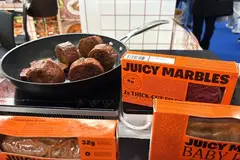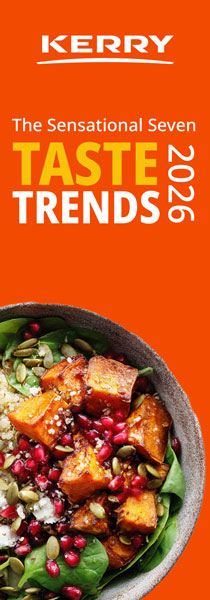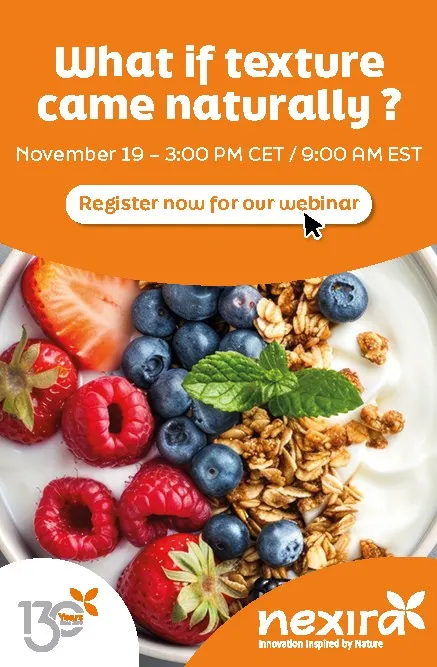Substituting palm oil: NoPalm Ingredients scales fermentation-based fats for commercialization
Dutch biotech company NoPalm Ingredients has scaled its fermentation-derived food-grade oils and fats from sidestreams to an industrial level of 120,000 liters, claiming to be the “first” in the world to do so.
The move is touted as a “transformative step” to reduce the industry’s reliance on palm oil, which is often associated with deforestation concerns, along with other tropical fats.
Lars Langhout, CEO, tells Food Ingredients First that the company’s yeast oils are “true drop-in replacements” to palm oils. They match key factors like melting curve and viscosity for seamless use in oil and fat applications and offer price parity with conventional palm oil.
“We don’t engineer microorganisms. Instead, we optimize feedstock, yeast strain, and process combinations to achieve the right oil properties. As one customer put it, switching to our oil was “boringly easy” — no reformulation needed, just a perfect palm oil alternative.”
“Because our oil behaves just like palm oil, it fits seamlessly into a wide range of applications. We’ve successfully tested it in chocolate, confectionery, meat and dairy alternatives, bouillon powders, cookies, biscuits, and many other products,” he adds.
Targeting price parity with palm oil
NoPalm Ingredients’ proprietary fermentation process utilizes yeasts and a patented low-CapEx technology to deliver price parity with palm oil.

 The company uses low capex fermentation technology to formulate its palm oil substitute from non-GMO yeast (Image credit: NoPalm Ingredients).“From day one, we knew that price and functionality were non-negotiable if we wanted to drive real change. Our approach focuses on three key cost drivers: feedstock, capital expenditures (CapEx), and energy.”
The company uses low capex fermentation technology to formulate its palm oil substitute from non-GMO yeast (Image credit: NoPalm Ingredients).“From day one, we knew that price and functionality were non-negotiable if we wanted to drive real change. Our approach focuses on three key cost drivers: feedstock, capital expenditures (CapEx), and energy.”
“Instead of first optimizing productivity under ideal conditions and then trying to cut costs afterward — like the conventional method — we designed a low-cost process from the ground up and built productivity around it. This strategic mindset has been the key to achieving price parity with palm oil.”
Tapping yeasts for utilizing industry sidestreams
Langhout shares that, unlike most alternatives, NoPalm Ingredients uses a “non-GMO yeast” that thrives on food industry sidestreams instead of glucose.
“Our technology is also unique because it allows us to produce harder fats directly, without requiring fractionation or chemical processing.”
However, fermenting food industry sidestreams posed challenges.
“Achieving the exact functional properties of palm oil is even tougher. Scaling up from a benchtop experiment to a 120m³ production scale? That’s a whole new level of complexity. But challenges are part of the journey, and I’m fortunate to work with an expert team that tackles each one head-on.”
The company says it tested its yeast-based fermentation process at a Contract Manufacturing Organization, which confirmed that its technology reliably produces food-grade oils, paving the way for large-scale commercial use.
Meanwhile, scientists have also tapped microalgae to develop palm oil substitutes previously.
 Palm oil is a versatile and cost-effective ingredient, which is associated with deforestation concerns.
Palm oil is a versatile and cost-effective ingredient, which is associated with deforestation concerns.
Tackling global oil demands
The “sustainable and circular alternative” to palm oils also directly addresses the growing supply-demand gap in the global oils and fats market, says the company.
It is formulated using the fermentation of upcycled agri-food side streams, emits 90% lower CO2, and uses 99% less land than palm oil, says the Wageningen, Netherlands-based firm.
“The demand for palm oil alternatives is growing as global supply struggles to keep up. Palm oil production increases by about 4% annually, but RSPO-certified sustainable palm oil only grows at 1% per year,” notes Langhout.
“The food industry recognizes the need for alternatives, and many are eager to work with us. We are currently navigating the regulatory approval process and expect to receive the necessary approvals later this year.”
Meanwhile, the company also targets consumer awareness about the benefits of fermentation-derived oils.
“Education is key to adoption. Together with a few partners, we are running consumer studies to better understand consumers’ perceptions of fermentation-derived oil. We work closely with our customers, conducting pilot tests and industrial-scale collaboration projects to demonstrate the benefits of our oils in real-world applications,” he adds.
Moving toward commercialization
Langhout tells us that NoPalm Ingredients’ yeast oil has received a positive market response, and various companies are in discussion with it about commercial agreements for future offtake.
 The yeast based oils can be used in chocolate, confectionery and meat and dairy alternatives.“They see the value in our offering and want to be among the first to introduce this innovative solution to the market.”
The yeast based oils can be used in chocolate, confectionery and meat and dairy alternatives.“They see the value in our offering and want to be among the first to introduce this innovative solution to the market.”
The company is now undergoing industrial-scale testing with commercial partners to validate performance in real-world applications. It plans to launch “limited-edition” products featuring its oils and fats later this year or early next year, Langhout tells us.
“We’re gearing up to establish a first-of-a-kind demonstration factory in 2026. This facility will allow us to supply larger volumes to our customers and serve as the blueprint for full-scale commercial factories, which we plan to roll out in 2027 and beyond.”
“Co-existence is the realistic path forward”
When asked if palm oil substitutes can replace palm oil in the future, Langhout says that “co-existence is the realistic path forward.”
“Palm oil is an incredibly versatile and cost-effective ingredient; replacing it entirely isn’t feasible. The real challenge is supply — there simply isn’t enough palm oil to meet future demand without further deforestation.”
“Our goal is to scale rapidly and provide a sustainable alternative that helps alleviate pressure on palm oil supply chains,” he concludes.
















